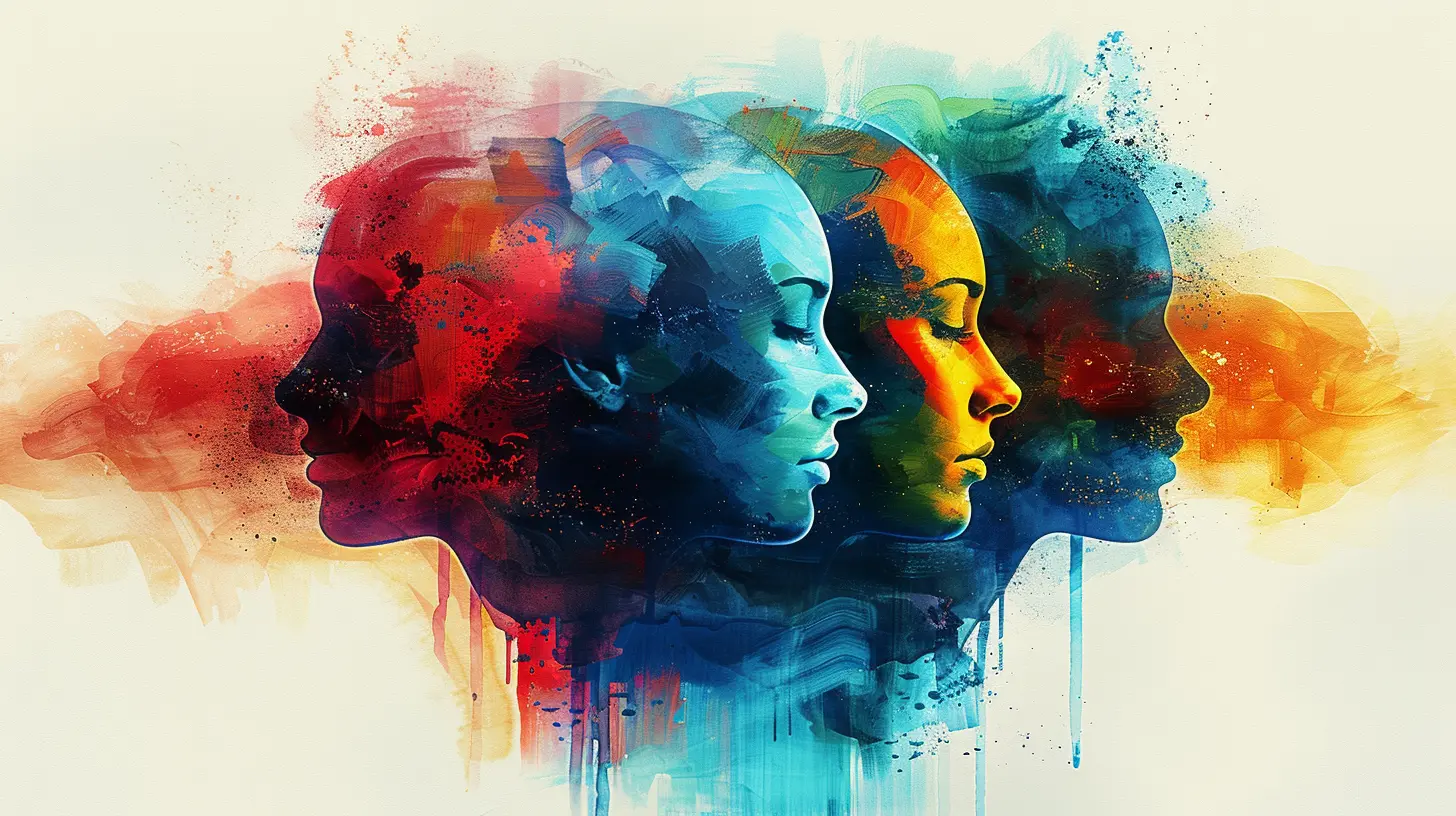The Role of Emotional Intelligence in Mental Health
14 September 2025
When life throws curveballs, how we handle our emotions plays a huge part in our overall mental health. The way we manage feelings, relate to others, and navigate the ups and downs of life all boils down to one thing: Emotional Intelligence (EI).
But what exactly is Emotional Intelligence, and why is it such a big deal for our mental well-being? In this article, we’ll take a deep dive into the role emotional intelligence plays in mental health. You'll discover how developing emotional smarts can boost your mood, strengthen your relationships, and help you live a more balanced life.

What is Emotional Intelligence?
Before we jump into how it impacts mental health, let’s get clear on what Emotional Intelligence actually is.In simple terms, Emotional Intelligence (EI) is the ability to recognize, understand, and manage our own emotions, as well as the emotions of others. It’s like having a radar for feelings—both your own and those around you.
Emotional Intelligence is usually broken down into five key components:
1. Self-awareness: Understanding your emotions and how they impact your thoughts and actions.
2. Self-regulation: The ability to control or redirect disruptive emotions and impulses.
3. Motivation: Being driven to achieve goals for the sake of achievement, not just external rewards.
4. Empathy: The ability to understand and share the feelings of others.
5. Social skills: Managing relationships and building networks with effective communication.
Think of Emotional Intelligence as your personal GPS for navigating the social and emotional landscape of life. It helps you avoid emotional traffic jams and dead-ends, guiding you toward healthier emotional destinations.

The Connection Between Emotional Intelligence and Mental Health
Here’s the thing: emotions can be messy. When we don’t understand or manage them properly, they can wreak havoc on our mental health. That’s where Emotional Intelligence comes in.1. Reducing Stress and Anxiety
Life is full of stressors—work deadlines, family conflicts, financial worries—you name it. But how we respond to those stressors can make all the difference.People with high Emotional Intelligence are better equipped to manage stress because they understand their emotional triggers and know how to cope in healthier ways. For example, instead of letting anxiety spiral out of control, they might practice mindfulness, deep breathing, or simply talk things out with a close friend.
In contrast, people with low EI may struggle to cope with stress, leading to chronic anxiety or even depression. They might bottle up their feelings, lash out, or turn to unhealthy coping mechanisms like overeating or substance abuse.
2. Improving Relationships
Let’s be real—relationships can be tricky. Whether it’s your roommate, your partner, or your boss, navigating the emotional dynamics of relationships can feel like walking a tightrope.High Emotional Intelligence helps you stay balanced. When you can empathize with others, communicate effectively, and manage your own emotional responses, it becomes much easier to build and maintain healthy relationships. This, in turn, leads to a stronger support system, which is a key factor in maintaining good mental health.
On the flip side, people with low EI often struggle with interpersonal conflicts. They may have difficulty understanding other people’s perspectives, leading to misunderstandings and emotional fallout. Over time, this can lead to loneliness, isolation, and a decline in mental well-being.
3. Enhancing Emotional Resilience
Emotional resilience—your ability to bounce back from adversity—is crucial for mental health. And guess what? Emotional Intelligence plays a huge role in building that resilience.When you’re emotionally intelligent, you’re better able to adapt to life’s challenges. You know how to process your emotions in a healthy way, rather than letting them overwhelm you. Whether it’s a breakup, job loss, or unexpected setback, high EI helps you keep things in perspective and move forward without getting stuck in a negative emotional loop.
People with lower Emotional Intelligence, on the other hand, may be more prone to emotional breakdowns or prolonged periods of sadness, anger, or frustration. They might struggle to move on from difficult experiences, which can contribute to long-term mental health issues like depression or chronic stress.
4. Promoting Self-Awareness
Self-awareness is the cornerstone of good mental health. If you don’t know what you’re feeling or why you’re feeling it, how can you possibly deal with it?Emotional Intelligence helps you tune into your emotional state. When you're self-aware, you can recognize when you’re feeling stressed, anxious, or down, and take proactive steps to address those feelings. For example, you might notice that you’re feeling irritable and realize it’s because you haven’t had enough sleep. That realization alone can help you make better choices to improve your well-being.
Without self-awareness, emotions can sneak up on you like a thief in the night, robbing you of your peace of mind. You might find yourself snapping at loved ones or feeling overwhelmed without really understanding why, which can fuel ongoing mental health struggles.
5. Fostering Positive Thinking
Your mindset has a massive impact on your mental health. Emotional Intelligence helps you cultivate a more positive, optimistic outlook on life.People with high EI tend to have a “glass-half-full” mentality. They can reframe negative emotions and situations in a more constructive way. For example, if they face a setback at work, they’re more likely to see it as an opportunity for growth rather than a personal failure. This kind of positive thinking is a powerful tool for maintaining good mental health.
On the other hand, people with low EI are often stuck in a cycle of negative thinking. They may dwell on past mistakes, blame themselves for things that are out of their control, or catastrophize minor setbacks. This kind of thinking can fuel anxiety, depression, and other mental health challenges.
6. Encouraging Healthy Coping Mechanisms
Let’s face it—life isn’t always sunshine and rainbows. But how you deal with the stormy days makes all the difference.Emotional Intelligence equips you with healthy coping mechanisms. Instead of resorting to destructive behaviors like substance abuse or isolation, people with high EI are more likely to turn to constructive strategies like exercise, talking to a friend, or practicing mindfulness.
Low EI often leads to unhealthy coping strategies. For example, someone might bottle up their emotions, lash out in anger, or engage in self-destructive habits. Over time, these behaviors can take a serious toll on mental health.

How to Improve Your Emotional Intelligence
Alright, so we’ve established that Emotional Intelligence is pretty much a superhero when it comes to mental health. But here’s the good news—EI isn’t something you’re either born with or not. It’s a skill you can develop over time.Here are some practical tips for boosting your Emotional Intelligence:
1. Practice Mindfulness
Being mindful means staying present and fully engaged with whatever you’re doing. It helps you become more aware of your emotions in the moment, which is the first step toward managing them effectively.You can start by practicing mindfulness techniques like deep breathing, meditation, or simply taking a few moments each day to check in with yourself and notice how you’re feeling.
2. Develop Empathy
Empathy is a core component of EI, and it’s something you can work on. Try putting yourself in others’ shoes and really listen when they talk about their feelings. Ask open-ended questions and strive to understand their perspective, even if you don’t agree with it.The more you practice empathy, the better you’ll get at connecting with others on an emotional level.
3. Improve Your Communication Skills
Effective communication is key to maintaining healthy relationships. Work on being clear, direct, and honest about your feelings, and encourage others to do the same. It’s also important to practice active listening—focus on understanding the other person’s emotions rather than just waiting for your turn to talk.4. Reflect on Your Emotions
Take some time each day to reflect on your emotional experiences. What triggered your feelings? How did you react? Could you have handled the situation differently? This kind of self-reflection can help you become more aware of your emotional patterns and improve your emotional regulation skills over time.5. Seek Feedback
Sometimes, we’re too close to our own emotions to see things clearly. That’s where feedback from others can be invaluable. Ask trusted friends, family members, or even a therapist for their perspective on how you handle emotions. They may offer insights that can help you grow emotionally.
Conclusion
Emotional Intelligence is like a secret weapon for maintaining good mental health. From reducing stress and building emotional resilience to improving relationships and fostering positive thinking, EI plays a critical role in our overall well-being.The best part? It’s a skill that anyone can develop. With practice, you can boost your Emotional Intelligence and enjoy the benefits of a healthier, more balanced emotional life.
So, the next time you’re feeling overwhelmed, stressed, or stuck in a negative emotional loop, remember: you have the power to steer your emotions in a better direction. The more you work on your Emotional Intelligence, the stronger your mental health will become.
all images in this post were generated using AI tools
Category:
Mental HealthAuthor:

Paulina Sanders
Discussion
rate this article
1 comments
Jack McNeal
This article highlights the crucial connection between emotional intelligence and mental health. By understanding and managing our emotions, we can enhance resilience, improve relationships, and foster overall well-being. Developing emotional intelligence is a key step toward better mental health and personal growth.
October 14, 2025 at 4:03 PM

Paulina Sanders
Thank you for your insightful comment! I completely agree—emotional intelligence is vital for mental health and personal growth.


